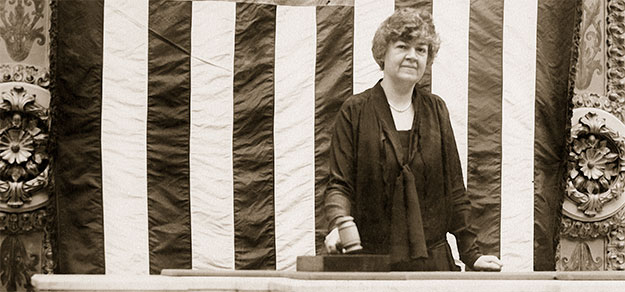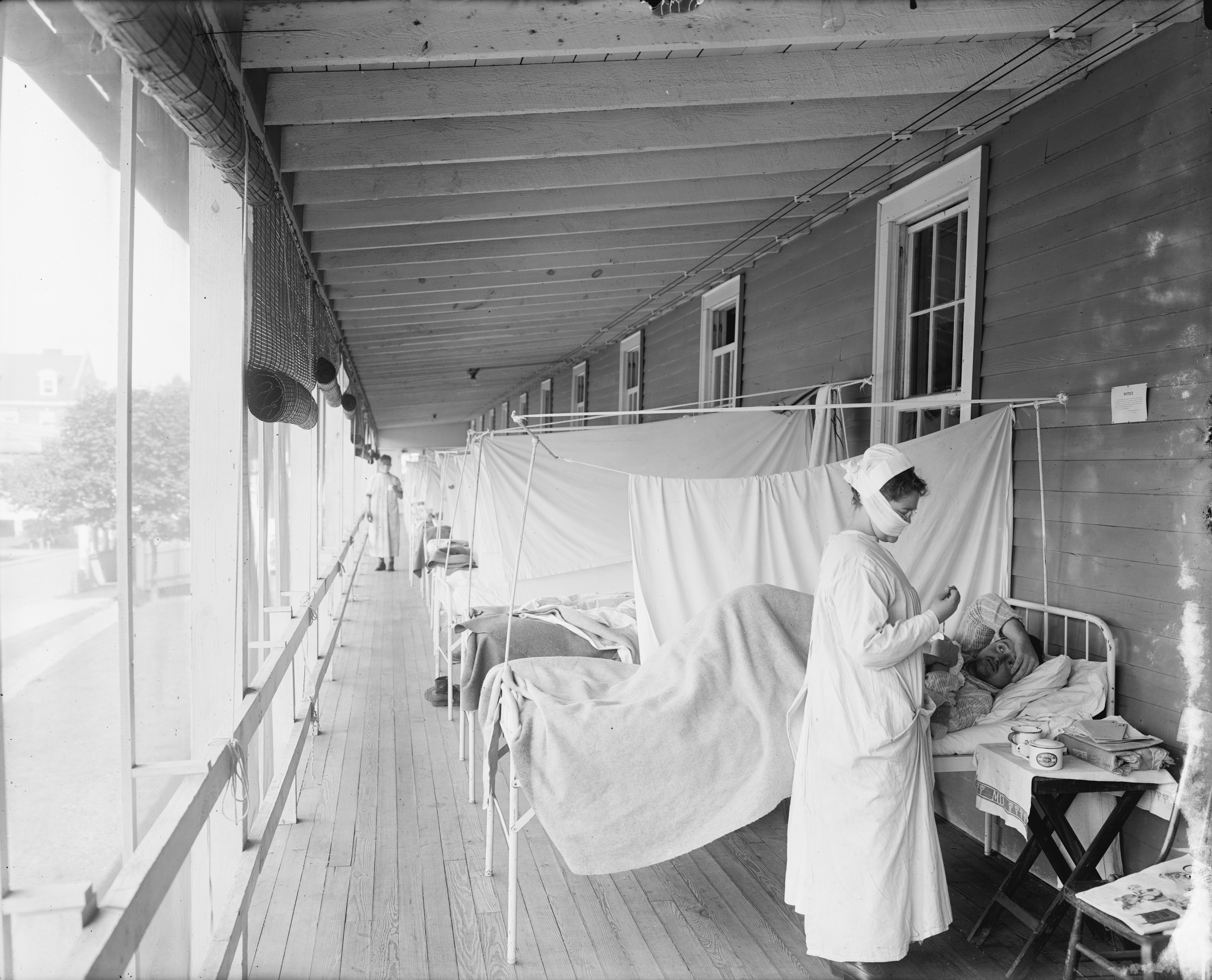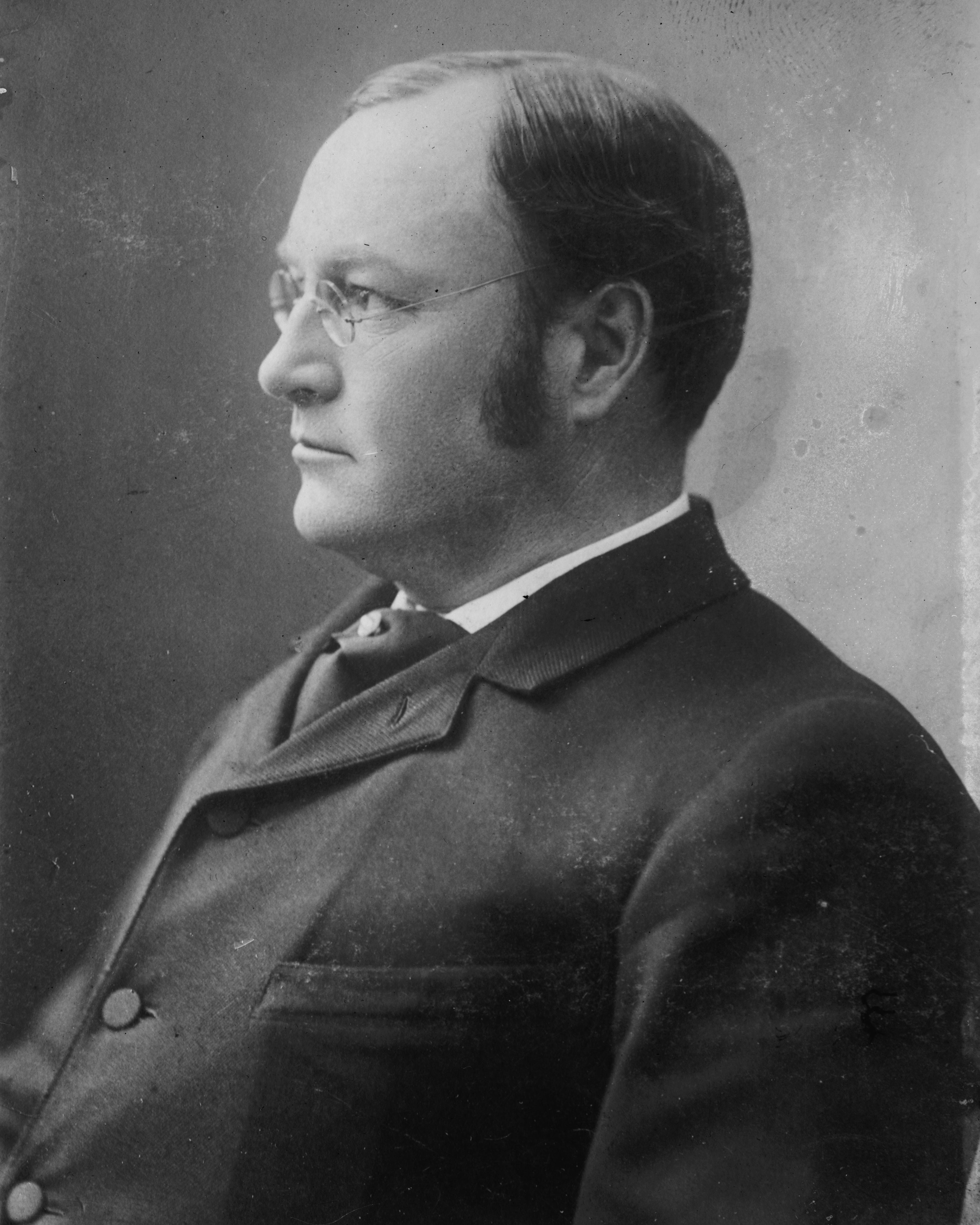|
Sydney Anderson
Sydney Anderson (September 18, 1881 – October 8, 1948) was a Representative from Minnesota; born in Zumbrota, Minnesota. After attending primary schools he served as a private in Company D, Fourteenth Regiment, Minnesota Volunteer Infantry, during the Spanish–American War in 1898. He graduated from high school in 1899 and attended Highland Park College, Des Moines, Iowa, afterwards the University of Minnesota at Minneapolis. He studied law and moved to Kansas City, Missouri, later to Lanesboro, Minnesota, continuing his law practice from 1904–1911. In 1910 at the age of 29, he defeated incumbent James Albertus Tawney in the Republican primary election with the support of Theodore Roosevelt, Gifford Pinchot and other Progressive Republicans, running on a platform of drastically reduced tariffs and opposition to Cannonism. He was subsequently elected to the 62nd, 63rd, 64th, 65th, 66th, 67th, and 68th congresses, (March 4, 1911 – March 3, 1925). Anderson c ... [...More Info...] [...Related Items...] OR: [Wikipedia] [Google] [Baidu] |
Minnesota
Minnesota () is a state in the upper midwestern region of the United States. It is the 12th largest U.S. state in area and the 22nd most populous, with over 5.75 million residents. Minnesota is home to western prairies, now given over to intensive agriculture; deciduous forests in the southeast, now partially cleared, farmed, and settled; and the less populated North Woods, used for mining, forestry, and recreation. Roughly a third of the state is covered in forests, and it is known as the "Land of 10,000 Lakes" for having over 14,000 bodies of fresh water of at least ten acres. More than 60% of Minnesotans live in the Minneapolis–Saint Paul metropolitan area, known as the "Twin Cities", the state's main political, economic, and cultural hub. With a population of about 3.7 million, the Twin Cities is the 16th largest metropolitan area in the U.S. Other minor metropolitan and micropolitan statistical areas in the state include Duluth, Mankato, Moorhead, Rochester, and ... [...More Info...] [...Related Items...] OR: [Wikipedia] [Google] [Baidu] |
Primary Election
Primary elections, or direct primary are a voting process by which voters can indicate their preference for their party's candidate, or a candidate in general, in an upcoming general election, local election, or by-election. Depending on the country and administrative divisions within the country, voters might consist of the general public in what is called an open primary, or solely the members of a political party in what is called a closed primary. In addition to these, there are other variants on primaries (which are discussed below) that are used by many countries holding elections throughout the world. The origins of primary elections can be traced to the progressive movement in the United States, which aimed to take the power of candidate nomination from party leaders to the people. However, political parties control the method of nomination of candidates for office in the name of the party. Other methods of selecting candidates include caucuses, internal selection by ... [...More Info...] [...Related Items...] OR: [Wikipedia] [Google] [Baidu] |
69th United States Congress
The 69th United States Congress was a meeting of the legislative branch of the United States federal government, consisting of the United States Senate and the United States House of Representatives. It met in Washington, D.C. from March 4, 1925, to March 4, 1927, during the third and fourth years of Calvin Coolidge's presidency. The apportionment of seats in the House of Representatives was based on the thirteenth decennial census of the United States in 1910. The Republicans made modest gains in maintaining their majority in both chambers, and with the election of President Calvin Coolidge to his own term in office, the Republicans maintained an overall federal government trifecta. Major events A special session of the Senate was called by President Coolidge on February 14, 1925. * Impeachment of Judge George W. English — On April 1, 1926, the House of Representatives impeached Judge George W. English of the United States District Court for the Eastern District of Ill ... [...More Info...] [...Related Items...] OR: [Wikipedia] [Google] [Baidu] |
68th United States Congress
The 68th United States Congress was a meeting of the legislative branch of the United States federal government, consisting of the United States Senate and the United States House of Representatives. It met in Washington, D.C. from March 4, 1923, to March 4, 1925, during the last months of Warren G. Harding's presidency, and the first years of the administration of his successor, Calvin Coolidge. The apportionment of seats in the House of Representatives was based on the thirteenth decennial census of the United States in 1910. Both chambers maintained a Republican majority - albeit greatly reduced from the previous Congress and with losing supermajority status in the House - and along with President Harding, the Republicans maintained an overall federal government trifecta. Major events *August 2, 1923 – President Warren Harding died. Vice President Calvin Coolidge became President of the United States Major legislation * April 26, 1924: Seed and Feed Loan Act * May 19, ... [...More Info...] [...Related Items...] OR: [Wikipedia] [Google] [Baidu] |
67th United States Congress
The 67th United States Congress was a meeting of the legislative branch of the United States federal government, consisting of the United States Senate and the United States House of Representatives. It met in Washington, D.C. from March 4, 1921, to March 4, 1923, during the first two years of Warren Harding's presidency. The apportionment of seats in the House of Representatives was based on the Thirteenth Census of the United States in 1910. The Republicans increased their majorities in both chambers - gaining supermajority status in the House - and with Warren G. Harding being sworn in a U.S. President, this gave the Republicans an overall federal government trifecta for the first time since the 61st Congress in 1909. This was the first Congress to feature a woman Senator appointed in the United States Senate, Rebecca L. Felton of Georgia, who held in office for one day. This is the most recent time Republicans had a 2/3rds supermajority in the House of Representatives. ... [...More Info...] [...Related Items...] OR: [Wikipedia] [Google] [Baidu] |
66th United States Congress
The 66th United States Congress was a meeting of the legislative branch of the United States federal government, comprising the United States Senate and the United States House of Representatives. It met in Washington, DC from March 4, 1919, to March 4, 1921, during the last two years of Woodrow Wilson's presidency. The apportionment of seats in the House of Representatives was based on the Thirteenth Census of the United States in 1910. The Republicans won majorities in both the House and the Senate, thus taking control of both chambers. This is the last congress to have no female members of congress in the House of Representatives, and thus the last time there was an all-male congress (several subsequent congresses, up to the 96th congress, would have periods with no women in the Senate but several in the House). Major legislation * June 30, 1919: Navy Appropriations Act of 1919 * June 30, 1919: Hastings Amendment * July 11, 1919: Anti-Lobbying Act of 1919 * July 11, 1919: A ... [...More Info...] [...Related Items...] OR: [Wikipedia] [Google] [Baidu] |
65th United States Congress
The 65th United States Congress was a meeting of the legislative branch of the United States federal government, composed of the United States Senate and the United States House of Representatives. It met in Washington, DC from March 4, 1917, to March 4, 1919, during the fifth and sixth years of Woodrow Wilson's presidency. The apportionment of seats in this House of Representatives was based on the Thirteenth Census of the United States in 1910. The Senate maintained a Democratic majority. In the House, the Republicans had actually won a plurality, but as the Progressives and Socialist Representative Meyer London caucused with the Democrats, this gave them the operational majority of the nearly evenly divided chamber, thus giving the Democrats full control of Congress, and along with President Wilson maintaining an overall federal government trifecta. Major events * March 4, 1917: Jeannette Rankin of Montana became the first woman member of the United States House of Rep ... [...More Info...] [...Related Items...] OR: [Wikipedia] [Google] [Baidu] |
64th United States Congress
The 64th United States Congress was a meeting of the legislative branch of the United States federal government, composed of the United States Senate and the United States House of Representatives. It met in Washington, DC from March 4, 1915, to March 4, 1917, during the third and fourth years of Woodrow Wilson's presidency. The apportionment of seats in the House of Representatives was based on the Thirteenth Census of the United States in 1910. The Democrats maintained a majority in both chambers (albeit reduced in the House), and along with President Wilson also maintained an overall federal government trifecta. Major events *June 9, 1915: (Prelude to World War I):U.S. Secretary of State William Jennings Bryan resigned over a disagreement regarding the nation's handling of the RMS Lusitania sinking. *July 24, 1915: The steamer SS Eastland capsized in central Chicago, with the loss of 844 lives. *July 28, 1915: The United States occupation of Haiti began. *August 5–Augu ... [...More Info...] [...Related Items...] OR: [Wikipedia] [Google] [Baidu] |
63rd United States Congress
The 63rd United States Congress was a meeting of the legislative branch of the United States federal government, composed of the United States Senate and the United States House of Representatives. It met in Washington, D.C. from March 4, 1913, to March 4, 1915, during the first two years of Woodrow Wilson's presidency. The apportionment of seats in the House of Representatives was based on the Thirteenth Census of the United States in 1910. The Democrats had greatly increased their majority in the House, and won control of the Senate, giving them full control of Congress for the first time since the 53rd Congress in 1893. With Woodrow Wilson being sworn in as President on March 4, 1913, this gave the Democrats an overall federal government trifecta - also for the first time since the 53rd Congress. Major events *March 4, 1913: Woodrow Wilson became President of the United States. *March 9, 1914: The Senate adopted a rule forbidding smoking on the floor of the Senate becau ... [...More Info...] [...Related Items...] OR: [Wikipedia] [Google] [Baidu] |
62nd United States Congress
The 62nd United States Congress was a meeting of the legislative branch of the United States federal government, composed of the United States Senate and the United States House of Representatives. It met in Washington, DC from March 4, 1911, to March 4, 1913, during the final two years of William H. Taft's presidency. The apportionment of seats in the House of Representatives was based on the Twelfth Census of the United States in 1900. Additional House seats were assigned to the two new states of New Mexico and Arizona. The size of the House was to be 435 starting with the new Congress coming into session in 1913. The Senate had a Republican majority, and the House had a Democratic majority. Major events * April 27, 1911: Following the resignation and death of William P. Frye, a compromise is reached to rotate the office of President pro tempore of the United States Senate. * October 30, 1912: Vice President James S. Sherman died. Major legislation * August 8, 1911: ... [...More Info...] [...Related Items...] OR: [Wikipedia] [Google] [Baidu] |
Cannonism
Joseph Gurney Cannon (May 7, 1836 – November 12, 1926) was an American politician from Illinois and leader of the Republican Party. Cannon served as Speaker of the United States House of Representatives from 1903 to 1911, and many consider him to be the most dominant speaker in United States history, with such control over the House that he could often control debate. The Cannon House Office Building, the oldest congressional office building, completed in 1908, was named for him in 1962. Early life Cannon was born in Guilford County, North Carolina, and in 1840 moved with his parents to Annapolis, Indiana, about 30 miles north of Terre Haute. He was the elder of two sons of Gulielma (née Hollingsworth) and Horace Franklin Cannon, a country doctor. Horace Cannon drowned on August 7, 1851, when Joseph was fifteen years old as he tried to reach a sick patient by crossing Sugar Creek. Young Cannon took charge of the family farm. His brother William would become a successful ... [...More Info...] [...Related Items...] OR: [Wikipedia] [Google] [Baidu] |
Tariffs
A tariff is a tax imposed by the government of a country or by a supranational union on imports or exports of goods. Besides being a source of revenue for the government, import duties can also be a form of regulation of foreign trade and policy that taxes foreign products to encourage or safeguard domestic industry. ''Protective tariffs'' are among the most widely used instruments of protectionism, along with import quotas and export quotas and other non-tariff barriers to trade. Tariffs can be fixed (a constant sum per unit of imported goods or a percentage of the price) or variable (the amount varies according to the price). Taxing imports means people are less likely to buy them as they become more expensive. The intention is that they buy local products instead, boosting their country's economy. Tariffs therefore provide an incentive to develop production and replace imports with domestic products. Tariffs are meant to reduce pressure from foreign competition and reduce the ... [...More Info...] [...Related Items...] OR: [Wikipedia] [Google] [Baidu] |

.jpg)



.png)